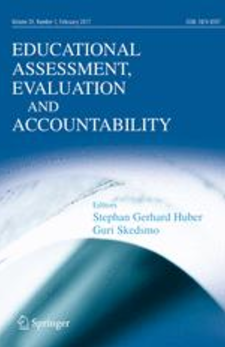In this paper we described how we mixed research approaches in a Randomized Control Trial (RCT) of a school principal professional development program. Using examples from our study we illustrate how combining qualitative and quantitative data can address some key challenges from validating instruments and measures of mediator variables to examining how contextual factors interact with the treatment. Describing how we transformed our qualitative and quantitative data, we consider how mixing methods enabled us to deal with the two core RCT challenges of random assignment and treatment control critical. Our account offers insights into ways of maximizing the potential of mixing research methods in RCTs.
Access PDF: https://link.springer.com/article/10.1007/s11092-009-9089-8
Citation: Spillane, J. P., Pareja, A. S., Dorner, L., Barnes, C., May, H., Huff, J., & Camburn, E. (2010). Mixing methods in randomized controlled trials (RCTs): Validation, contextualization, triangulation, and control. Educational Assessment, Evaluation, and Accountability, 22(1), 5-28.




